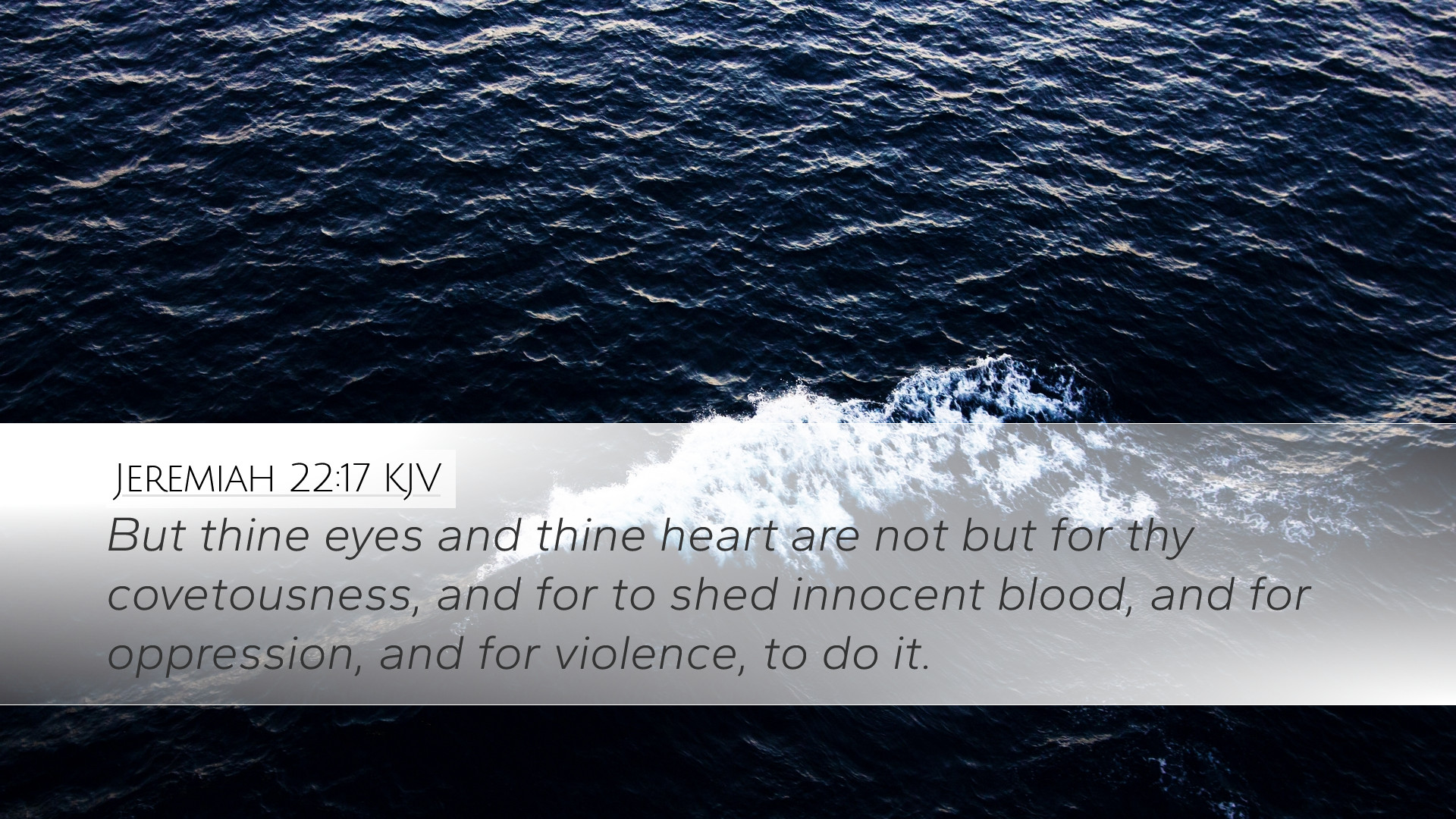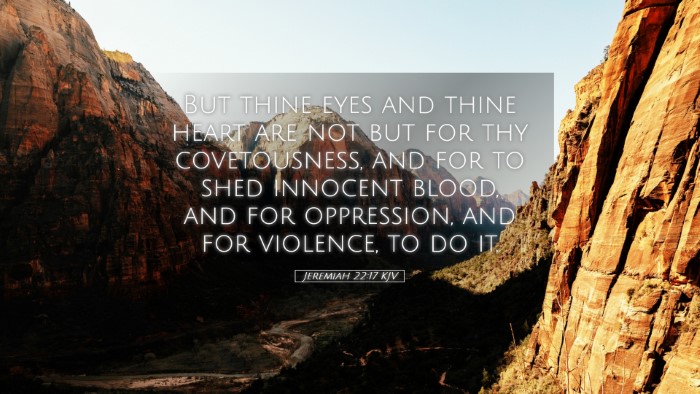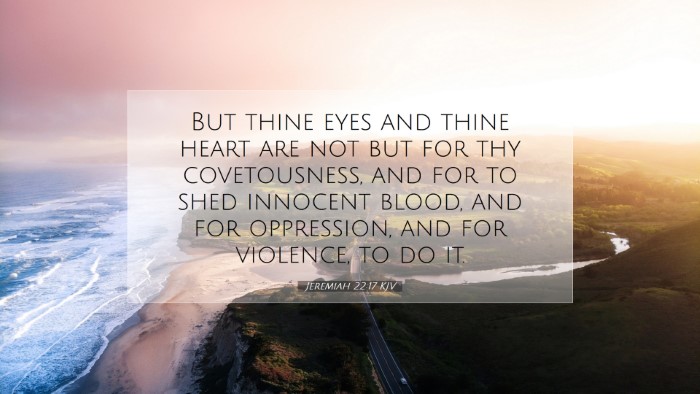Commentary on Jeremiah 22:17
Jeremiah 22:17 states: "But thine eyes and thine heart are not but for thy covetousness, and for to shed innocent blood, and for oppression, and for violence, to do it." This verse encapsulates the moral and spiritual decay that characterized the leadership of Judah during Jeremiah's time. It serves as a profound indictment of King Jehoiakim's character and reign, focusing on the grave sins that he permitted and even participated in.
1. Contextual Background
In this chapter, God addresses the rulers of Judah, specifically targeting their corrupt practices and wrongful governance. Jeremiah is often seen as the prophet of judgment who calls out injustices. The historical and social context of Judah during this period is crucial for understanding the weight of this verse.
2. Theological Implications
The verse starkly presents the notion that a ruler’s focus can be entirely misplaced, leading to national and communal ruin. It encapsulates a triad of immoral behaviors: covetousness, violence, and oppression. Each of these aspects reveals a deeper theological truth about the nature of sin and the lack of divine accountability.
2.1 Covetousness
Covetousness, as highlighted in the verse, conveys a desire for what belongs to others, suggesting a selfish ambition that drives individuals, particularly leaders, to moral failure. Matthew Henry reflects on this, noting that rulers who are consumed by greed divert their eyes from justice and righteousness, fostering environments where corruption thrives.
2.2 Innocent Blood
The reference to shedding innocent blood indicates a severe violation of moral and divine law. Adam Clarke underscores the gravity of this sin, emphasizing that it represents not only a personal failing but a societal betrayal. Leaders who permit or engage in violence against the innocent undermine the integrity of the entire nation.
2.3 Oppression and Violence
The terms oppression and violence reveal the systemic injustices perpetuated under Jehoiakim’s regime. Albert Barnes elaborates on the societal impact, noting that a God-fearing ruler should protect the vulnerable and uphold justice. Instead, we see a leadership that thrives on exploiting the weak, leading to a profound societal imbalance and subsequent divine judgment.
3. Practical Applications
For contemporary pastors, theologians, and students of the Bible, this verse serves as a solemn reminder of the responsibilities placed upon leaders—whether ecclesiastical or civil. There are several key applications to consider.
3.1 Ethical Leadership
The ethical stance of leaders must be scrutinized through the lens of Scripture. This verse calls for leaders to examine their motives and the impacts of their decisions. As leaders, integrity must be paramount, aligning decisions with biblical principles of justice and mercy.
3.2 Advocacy for the Innocent
The shedding of innocent blood should mobilize believers toward advocacy. Churches today must engage in proactive measures to protect the vulnerable—whether through social justice initiatives, outreach programs, or broader advocacy for systemic change in societies plagued by violence and oppression.
3.3 Personal Accountability
Beyond corporate responsibility, this verse also invites personal reflection. Each believer is called to examine their own hearts to ensure they are not complicit in systems of oppression through indifference or negligence. Their desire for personal gain should not overshadow their commitment to righteousness and love for neighbor.
4. Conclusion
Jeremiah 22:17 remains a powerful testament to the calling of biblical leadership. It serves as a warning and a guide for all who aspire to lead in any capacity. The grave consequences facing Jehoiakim and Judah evoke a call to diligence and accountability within our own hearts and communities. As we strive for righteousness, let us remember the burdens we bear as leaders and the sacred duty to protect those whom God has entrusted to our care.


